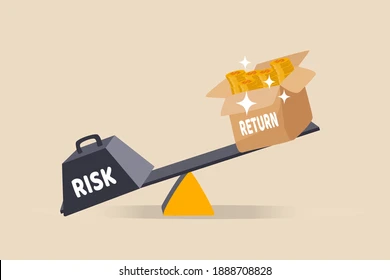In the dynamic world of startup investments, understanding the variations in the due diligence processes between angel investors and venture capitalists (VCs) is crucial for entrepreneurs aiming to secure funding. This detailed analysis sheds light on why these differences exist, offering insights into the unique strategies of each investor type.
Understanding the Basics: Angel Investors vs. Venture Capitalists
Before delving into the intricacies of due diligence, it’s crucial to establish a solid understanding of the fundamental disparities between angel investors and venture capitalists. Both play pivotal roles in the startup ecosystem, yet they operate distinctively in terms of investment approach, funding size, and involvement levels.
Angel Investors
Venture into the realm of startup investment, and you’ll inevitably encounter the enigmatic figures known as angel investors. These individuals, driven by a blend of financial acumen and a fervent zeal for innovation, inject their personal fortunes into burgeoning ventures, often at their inception. But what defines these angels of entrepreneurship? Let’s delve into their distinctive traits:
- Investment Stage: Angel investors are the early birds of the investment ecosystem, favoring fledgling enterprises still in the embryonic stages of development. They’re the knights of the startup roundtable, offering their support when traditional funding avenues seem like a distant mirage.
- Funding Size: Picture a spectrum of financial backing, with angel investments occupying the modest end. Ranging from a modest few thousand to a princely sum of several hundred thousand dollars, these investments represent a lifeline for startups navigating the tumultuous seas of business infancy.
- Source of Funds: Unlike the faceless entities of venture capitalism, angel investors are the embodiment of individual agency. Their coffers overflow with the spoils of entrepreneurial conquests, inheritance windfalls, or the spoils of past business triumphs. Each investment decision is a testament to their personal conviction and financial prowess.
- Involvement Level: Beyond the mere exchange of capital, angel investors bring a treasure trove of intangible assets to the table. From sage mentorship to coveted industry connections, they’re the guiding stars illuminating the path to success for the startups they champion. Their involvement runs the gamut, from occasional sage advice to the immersive mentorship of a seasoned guide, tailored to the unique needs of each venture.
Venture Capitalists
In contrast, venture capitalists represent professional investment businesses that handle pooled assets from institutional investors, high-net-worth individuals, and corporations. They play a crucial role in scaling startups by injecting substantial capital and expertise. Here are some key characteristics of venture capitalists:
- Investment Stage: Venture capitalists typically target more mature startups that have demonstrated market traction, validated business models, and the potential for rapid growth. They often invest in Series A, B, and later rounds, providing capital to fuel expansion and scaling efforts.
- Funding Size: Venture capital investments are significantly larger than angel investments, often ranging from several hundred thousand dollars to tens of millions or even hundreds of millions, depending on the startup’s growth trajectory and funding requirements.
- Source of Funds: Venture capital firms raise funds from institutional investors such as pension funds, university endowments, and foundations, as well as high-net-worth individuals and corporations. These pooled funds are then deployed strategically to invest in promising startups across various industries and sectors.
- Involvement Level: While venture capitalists primarily contribute capital to startups, they also offer extensive strategic support, operational guidance, and networking opportunities. Many venture capital firms have dedicated teams of analysts, advisors, and industry experts who work closely with portfolio companies to maximize their growth potential.
Scale of Investment
The scale of investment plays a pivotal role in shaping the due diligence processes undertaken by both angel investors and venture capitalists. Understanding this disparity is crucial for entrepreneurs seeking funding and investors looking to optimize their investment strategies.
Angel Investors
Angel investors typically deal with smaller investment amounts compared to venture capitalists. As a result, their due diligence process may be less extensive and rigorous. Here’s how the scale of investment impacts angel investors’ approach to due diligence:
- Smaller Investment Amounts: Angel investors typically invest smaller sums, ranging from a few thousand to several hundred thousand dollars, into startups. This lower financial commitment allows them to be more flexible in their due diligence process.
- Limited Resources: With smaller investment amounts, angel investors may have limited resources to conduct thorough due diligence. They may rely more on their personal judgment, network, and gut feeling when evaluating investment opportunities.
- Focus on Founder Relationships: Due to the smaller scale of investment, angel investors often prioritize building strong relationships with the founders. They may place greater emphasis on the founder’s vision, passion, and commitment, rather than conducting extensive financial analysis or market research.
Venture Capitalists
Venture capitalists, dealing with larger investment amounts and managing pooled funds, undertake a more comprehensive due diligence process. Here’s how the scale of investment influences venture capitalists’ approach to due diligence:
- Larger Investment Sums: Venture capitalists invest significantly larger amounts, ranging from hundreds of thousands to tens of millions of dollars, into startups. This substantial financial commitment necessitates a more thorough due diligence process to mitigate risks.
- Dedicated Resources: Venture capital firms have dedicated teams of analysts, advisors, and industry experts who conduct in-depth due diligence on potential investments. They utilize extensive resources, including market research, financial analysis, and technology assessments, to evaluate the viability and scalability of startups.
- Risk Mitigation: Due of the higher financial risks of larger investments, venture capitalists prioritize risk reduction during due diligence. To invest, they consider the startup’s market potential, competitive landscape, intellectual property, team dynamics, and growth trajectory.
Stages of Investment

The stages of investment, ranging from early-stage to later-stage funding rounds, significantly influence the due diligence processes conducted by both angel investors and venture capitalists. Understanding these stages is crucial for entrepreneurs seeking funding and investors evaluating investment opportunities.
Early Stage
Early-stage investments are characterized by the nascent phases of a startup, where less historical data is available, posing challenges for extensive due diligence. Here’s how the early-stage investment phase impacts the due diligence processes of angel investors:
- Limited Historical Data: Early-stage startups often lack significant operational history, financial records, or market traction, making it challenging to conduct thorough due diligence based on historical performance.
- Focus on Vision and Potential: Angel investors prioritize evaluating the founder’s vision, market opportunity, and growth potential during early-stage due diligence. They may place greater emphasis on qualitative factors such as the strength of the founding team, product-market fit, and innovation potential.
- Risk Tolerance: Due to the inherent uncertainties associated with early-stage investments, angel investors exhibit a higher risk tolerance and may be more willing to invest based on conviction and gut feeling rather than extensive data analysis.
Later Stage
Later-stage investments occur when a startup has developed a more established operational history, allowing for a more detailed analysis of its performance and prospects. Here’s how the later-stage investment phase influences the due diligence processes of venture capitalists:
- Availability of Historical Data: Later-stage startups typically have more comprehensive financial records, market data, and operational metrics available for analysis. This enables venture capitalists to conduct more quantitative and data-driven due diligence.
- Focus on Metrics and Performance: Venture capitalists prioritize analyzing key performance indicators (KPIs), revenue growth, customer acquisition metrics, and market share during later-stage due diligence. They rely on quantitative analysis to assess the startup’s scalability, profitability, and potential for sustained growth.
- Risk Mitigation: Despite the availability of historical data, venture capitalists still prioritize risk mitigation during later-stage due diligence. They scrutinize the startup’s competitive positioning, market dynamics, management team, and potential risks to identify potential red flags and mitigate investment risks.
Resource Constraints
Resource constraints significantly impact the due diligence processes of angel investors and venture capitalists, influencing the depth and breadth of their evaluations. Understanding these constraints is crucial for entrepreneurs seeking funding and investors evaluating investment opportunities.
Angel Investors
Angel investors, often operating independently or in small groups, may face limitations in terms of resources compared to venture capital firms. Here’s how resource constraints impact the due diligence processes of angel investors:
- Limited Team Structure: Angel investors typically lack the organizational structure and dedicated teams found in venture capital firms. As a result, they may have fewer resources available for conducting comprehensive due diligence.
- Personal Expertise: Due to resource constraints, angel investors often rely on their personal expertise, industry knowledge, and network connections to evaluate investment opportunities. They may leverage their own experiences as entrepreneurs or business professionals to assess the viability and potential of startups.
- Outsourcing Certain Tasks: To overcome resource limitations, angel investors may outsource certain due diligence tasks, such as legal review or financial analysis, to external professionals or consultants. While this approach allows for specialized expertise, it may also entail additional costs and dependencies.
Venture Capitalists
Venture capital firms, equipped with dedicated teams and extensive resources, have the advantage of conducting more thorough due diligence. Here’s how resource availability influences the due diligence processes of venture capitalists:
- Dedicated Teams: Venture capital firms typically have dedicated teams of analysts, advisors, and experts in various domains, including market research, legal due diligence, and financial analysis. These teams collaborate to conduct comprehensive evaluations of potential investments.
- Access to Data and Tools: Venture capitalists have access to sophisticated data analytics tools, market research databases, and proprietary platforms that facilitate detailed analysis and decision-making. These resources enable them to gather and analyze vast amounts of data efficiently.
- Expertise in Specialized Areas: With specialized teams focused on specific areas such as technology assessment, regulatory compliance, or intellectual property rights, venture capital firms can delve into niche aspects of due diligence with precision and depth.
Investment Philosophy
The investment philosophy adopted by angel investors and venture capitalists significantly shapes their approach to due diligence and decision-making processes. Understanding these philosophies is essential for entrepreneurs seeking funding and investors evaluating investment opportunities.
Angel Investors
Angel investors often prioritize personal rapport, trust, and intuition over strict reliance on hard data. Their investment philosophy is characterized by flexibility, subjectivity, and a willingness to take calculated risks. Here’s how their investment philosophy influences their approach to due diligence:
- Personal Rapport and Trust: Angel investors may place greater emphasis on building strong relationships with entrepreneurs and founders. They value personal rapport and trust, often investing in individuals they believe in, even in the absence of comprehensive data or proven track records.
- Reliance on Judgment and Experience: Due to their entrepreneurial backgrounds or industry expertise, angel investors rely heavily on their personal judgment and experience when evaluating investment opportunities. They draw upon their own successes, failures, and insights to assess the potential of startups.
- Flexibility and Risk Tolerance: Angel investors exhibit a higher degree of flexibility and risk tolerance compared to venture capitalists. They are more willing to embrace uncertainty, invest in unproven ideas, and support early-stage ventures that may lack clear revenue streams or market validation.
Venture Capitalists
Venture capitalists adhere to a structured, data-driven investment strategy driven by their fiduciary responsibility to their contributors. Their investment philosophy is characterized by rigorous analysis, objective evaluation criteria, and a focus on maximizing returns while minimizing risks. Here’s how their investment philosophy influences their approach to due diligence:
- Structured and Data-Driven Approach: Venture capitalists follow a structured due diligence process that relies heavily on quantitative analysis, market research, and financial modeling. They utilize data-driven metrics and benchmarks to evaluate the viability and scalability of potential investments.
- Fiduciary Responsibility: Venture capitalists have a fiduciary duty to their limited partners and investors to prudently manage their capital and generate attractive returns. As such, they prioritize investments that align with their fund’s objectives, risk profile, and expected financial outcomes.
- Emphasis on Scalability and Growth Potential: Venture capitalists focus on identifying startups with significant growth potential and scalable business models. They seek opportunities to invest in companies that can achieve rapid expansion, capture market share, and deliver substantial returns on investment.
Expected Returns and Risk Tolerance

Expected returns and risk tolerance play a significant role in shaping the due diligence processes of both angel investors and venture capitalists. Understanding these factors is crucial for entrepreneurs seeking funding and investors evaluating investment opportunities.
Angel Investors
Angel investors often have higher risk tolerance levels and may prioritize potential returns over mitigating risks through extensive due diligence. Here’s how expected returns and risk tolerance influence the due diligence processes of angel investors:
- Higher Risk Tolerance: Angel investors, operating with their personal funds and without the fiduciary responsibility to external investors, are typically more willing to take on higher-risk investments. They understand that investing in early-stage startups entails inherent uncertainties and are prepared to accept the associated risks.
- Focus on Potential Returns: With a greater appetite for risk, angel investors may prioritize the potential for high returns when evaluating investment opportunities. They may be more inclined to invest in disruptive technologies, innovative ideas, or unproven markets, recognizing the possibility of significant upside potential.
- Impact on Due Diligence: The higher risk tolerance of angel investors often translates into a less rigorous due diligence process. While they may still conduct some level of analysis and evaluation, they may be more willing to rely on intuition, personal connections, and qualitative factors rather than extensive quantitative analysis or market research.
Venture Capitalists
Venture capitalists, accountable to their limited partners and investors, adhere to a disciplined approach to risk management and expected returns. Here’s how these factors influence the due diligence processes of venture capitalists:
- Fiduciary Responsibility: Venture capitalists have a fiduciary duty to their limited partners to prudently manage capital and generate attractive returns while minimizing risks. As a result, they undertake thorough due diligence to mitigate investment risks and maximize the probability of success.
- Balancing Risk and Return: While venture capitalists are also seeking high returns, they approach risk management more systematically. They aim to strike a balance between risk and return by thoroughly analyzing market dynamics, competitive landscapes, and financial projections to identify investment opportunities with attractive risk-adjusted returns.
- Impact on Due Diligence: The fiduciary responsibility of venture capitalists necessitates a more comprehensive due diligence process. They conduct extensive analysis, including market research, financial modeling, technology assessments, and legal due diligence, to evaluate the viability and scalability of potential investments thoroughly.
Portfolio Strategy
Portfolio strategy plays a crucial role in shaping the due diligence processes of both angel investors and venture capitalists. Understanding these strategies is essential for entrepreneurs seeking funding and investors evaluating investment opportunities.
Angel Investors
Angel investors often adopt a diversified portfolio strategy to spread risk across multiple investments. Here’s how portfolio diversification influences the due diligence processes of angel investors:
- Diversification: Angel investors typically invest in a broad range of startups across different industries, stages, and business models to mitigate the risk of individual failures. This diversification strategy aims to spread risk and maximize the likelihood of capturing successful investments.
- Less In-depth Due Diligence: Maintaining a diverse portfolio may result in less in-depth due diligence conducted per startup. With limited time and resources available for each investment, angel investors may focus on key qualitative factors such as founder credibility, market opportunity, and product-market fit, rather than exhaustive quantitative analysis or market research.
- Risk Management: Portfolio diversification serves as a risk management strategy for angel investors, allowing them to tolerate a higher level of uncertainty and volatility in individual investments. By spreading their capital across multiple startups, they aim to minimize the impact of potential losses on their overall investment portfolio.
Venture Capitalists
Venture capitalists may adopt a more focused approach to portfolio strategy, specializing in specific sectors or business models. Here’s how focus areas influence the due diligence processes of venture capitalists:
- Focus on Specific Sectors: Venture capital firms often specialize in particular sectors or industries where they have domain expertise, networks, and track records of success. This specialization allows them to develop deep insights and understanding, facilitating more efficient and focused due diligence processes.
- Expertise and Efficiency: By focusing on specific sectors or business models, venture capitalists can streamline their due diligence processes and leverage their expertise to identify investment opportunities with greater efficiency. They can quickly assess market dynamics, competitive landscapes, and growth potential, enabling faster decision-making.
- Thematic Investing: Some venture capital firms adopt thematic investing strategies, targeting emerging trends, technologies, or market segments. This thematic approach guides their investment thesis and due diligence efforts, enabling them to capitalize on promising opportunities within their focus areas.
Conclusion
Understanding the distinctions in due diligence practices between angel investors and VCs is essential for startups seeking funding. This awareness helps in tailoring pitches and expectations accordingly, enhancing the chances of successful partnerships in the competitive startup ecosystem.
FAQ
A: For angel investors, it can range from a few weeks to a couple of months, whereas VCs might take several months due to the depth of analysis required.
A: Key areas include financial health, market potential, legal compliance, team evaluation, and product viability.
A: Yes, by maintaining transparent records, having a clear business plan, and demonstrating market traction and potential.
A: No, due diligence varies widely among angel investors based on personal experience, risk tolerance, and investment philosophy.
